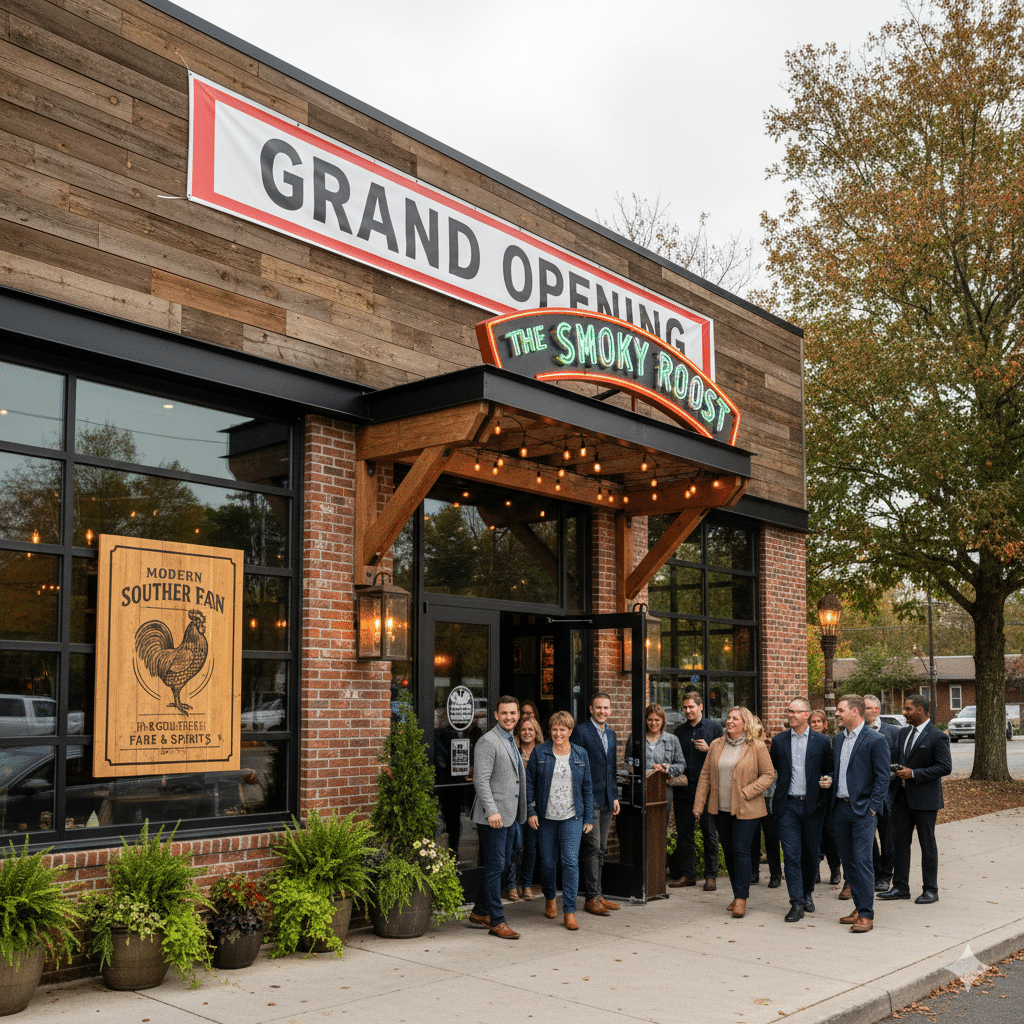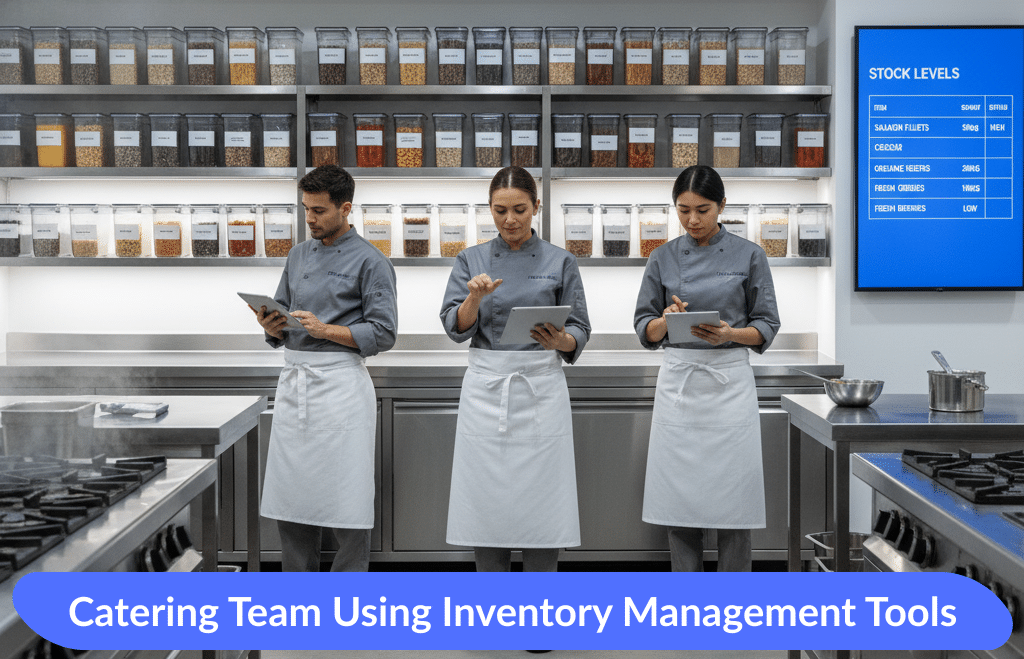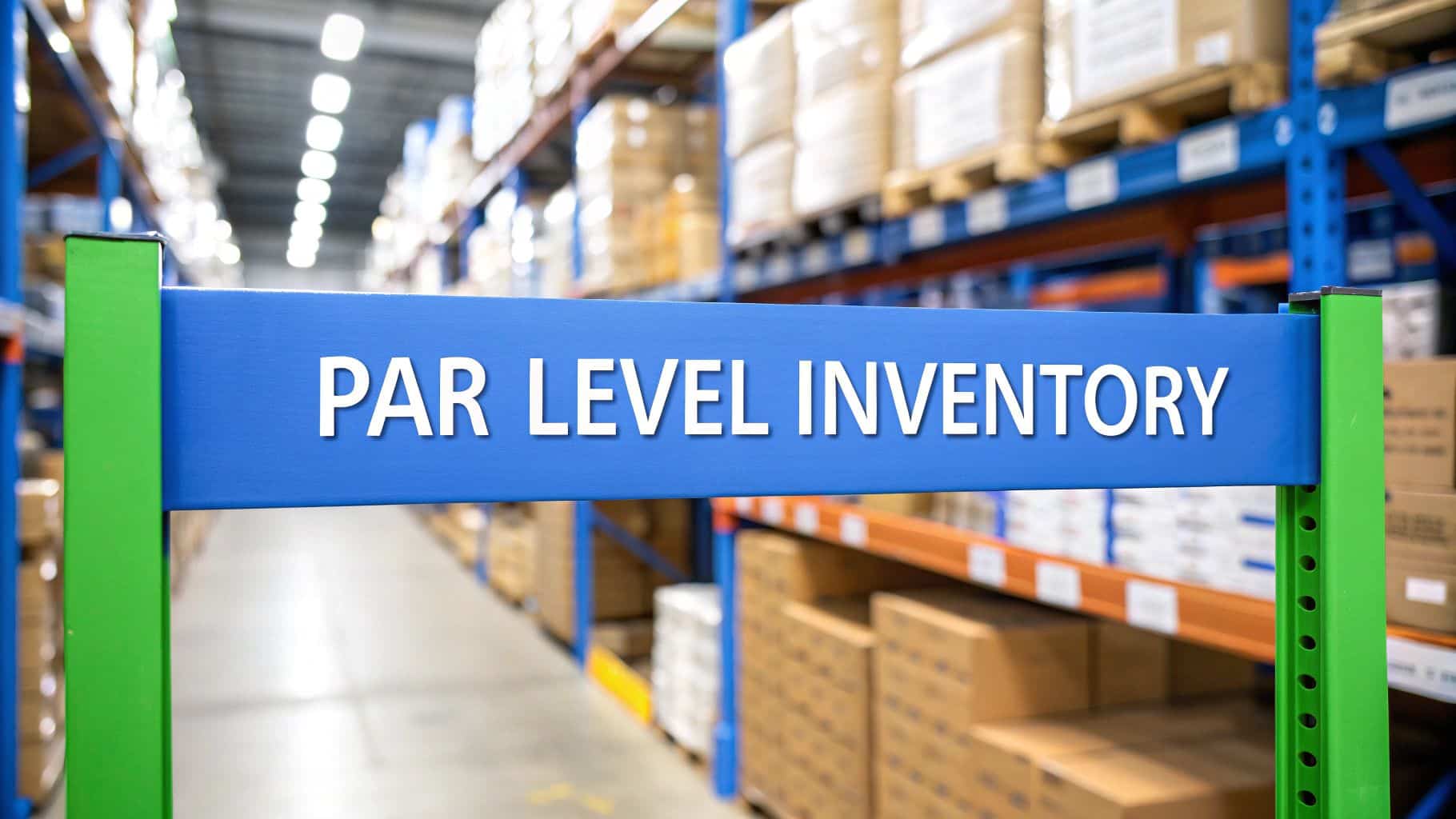Opening a restaurant in Tennessee can be one of the most rewarding ventures for aspiring entrepreneurs. The state’s growing hospitality industry, diverse communities, and supportive small business resources make it a promising place to launch a food business. However, understanding the requirements—from business licensing to health inspections—is crucial to building a successful and compliant operation. This guide will walk you through everything you need to know about opening a restaurant in Tennessee, including startup costs, permits, regulations, and marketing strategies.
Table of Contents
- Understanding Licenses and Permits in Tennessee
- Estimating Startup Costs and Financial Planning
- Choosing the Right Location and Meeting Zoning Requirements
- Hiring Employees and Meeting Certification Rules
- Menu Planning and Restaurant Marketing Strategies
- How Biyo POS Supports Tennessee Restaurants
- Frequently Asked Questions
Understanding Licenses and Permits in Tennessee
Before you open your doors, you need to navigate the required licenses and permits. These documents ensure that your restaurant follows Tennessee restaurant requirements and complies with all legal frameworks.
Business License and Registration
Every restaurant in Tennessee must have a valid business license. You begin by registering your business with the Tennessee Secretary of State, which can be done online or in person. Once registered, you’ll need to apply for a business license through your local county clerk’s office. This step is essential because it legally allows you to conduct business operations.
In addition to registration, you should consider the tax requirements. Tennessee requires most restaurants to collect sales tax, which you’ll remit to the state. Setting up your tax accounts early helps avoid penalties and ensures compliance with Tennessee small business licensing rules. Entrepreneurs often overlook this step, but failing to pay attention can slow down your launch.
Another part of business registration involves selecting the right business structure. Many restaurant owners choose LLCs for liability protection and tax benefits. Each option comes with unique legal responsibilities, so consulting with an attorney or accountant is often helpful.
Once your business license is in place, the next step is food permits, which protect your guests and ensure safety standards are met.
Food Service Permit and Health Department Approval
The Tennessee health department issues food service permits for restaurants. Before approval, you must submit detailed plans of your commercial kitchen, including layout, equipment, and sanitation measures. These plans help the department verify that your facility meets state food safety standards.
After submitting your application, a health inspection will be scheduled. Inspectors review cleanliness, food storage, cooking practices, and employee hygiene. Passing this inspection is mandatory before opening. Restaurants must also maintain compliance with ongoing inspections, as failure can result in fines or closure.
Food handler certification is also vital. Employees handling food must complete state-approved training. This certification ensures that your staff understands proper food safety practices, reducing the risk of foodborne illnesses and protecting your reputation.
Once you have your food service permit secured, the next step is alcohol service for those planning to offer beverages.
Tennessee Liquor License and Alcohol Regulations
If you plan to serve alcohol, obtaining a Tennessee liquor license is necessary. The Tennessee Alcoholic Beverage Commission (TABC) oversees these applications. The process includes background checks, fees, and proof that your business complies with zoning laws. Depending on whether you want to serve beer, wine, or spirits, the license type will differ.
Serving alcohol also requires your staff to obtain responsible alcohol service training. This training educates employees on identifying underage or intoxicated customers and handling situations responsibly. Compliance not only avoids fines but also ensures customer safety.
Since liquor licenses are competitive and sometimes capped, start this process early. Many new restaurants delay opening because they wait too long to file their applications. Being proactive gives you a better chance of securing approval before your launch date.
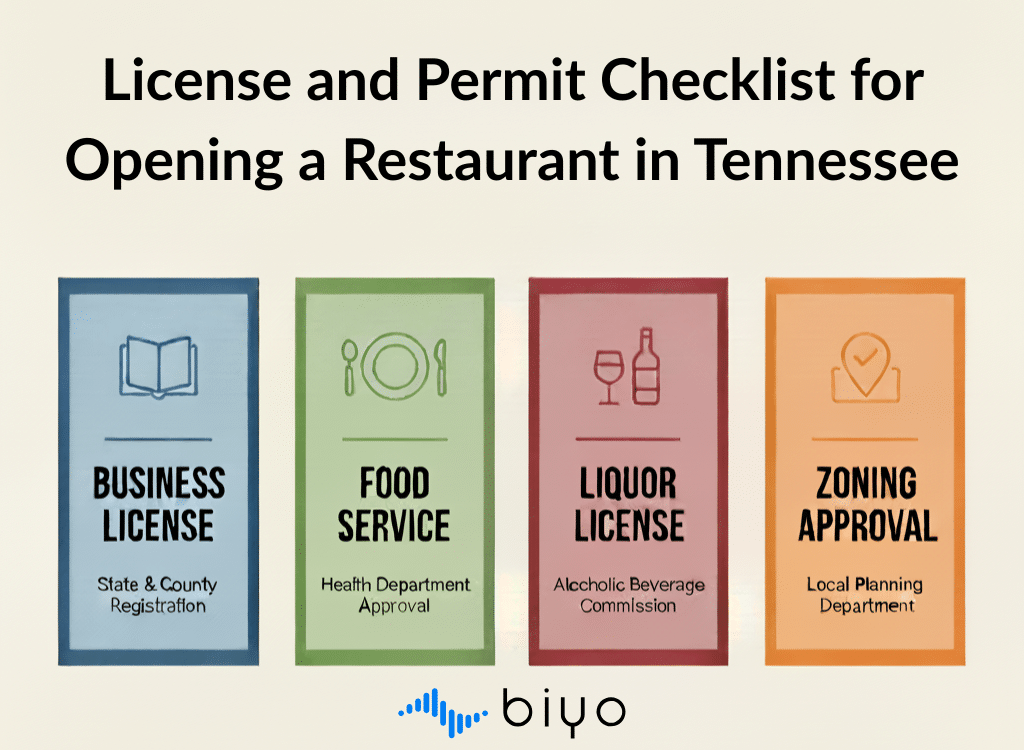
Estimating Startup Costs and Financial Planning
Opening a restaurant in Tennessee involves significant financial planning. Understanding startup costs and creating a budget ensures your restaurant is prepared for long-term success.
Calculating Initial Startup Costs
Startup costs for restaurants vary depending on size, location, and menu type. On average, Tennessee restaurant startups can expect to spend between $150,000 and $500,000. These expenses cover rent, commercial kitchen build-outs, equipment purchases, licenses, and permits. Keeping detailed records of every estimated expense helps you build a realistic budget.
Startup costs also include deposits for utilities, insurance, and initial inventory. Without accounting for these, you may face early cash flow issues. Preparing at least six months of working capital is highly recommended to cover expenses while your restaurant gains traction.
Some entrepreneurs reduce startup costs by leasing restaurant equipment instead of buying it upfront. This option provides flexibility and allows you to invest savings into marketing or staffing needs.
Once initial costs are understood, the focus shifts to ongoing expenses and financial forecasting.
Managing Ongoing Operational Costs
Operational costs include payroll, rent, utilities, supplier invoices, and marketing. In Tennessee, labor costs are often one of the highest expenses, making effective scheduling and payroll systems essential. Using technology like modern POS systems helps track employee hours and optimize labor spending.
Supplier sourcing is another major cost factor. Building relationships with local farmers and distributors can help secure better pricing and fresher products. Over time, negotiating contracts with suppliers can reduce costs significantly. Many Tennessee restaurants emphasize local sourcing to appeal to customers while also managing expenses.
Finally, utility bills for electricity, gas, and water must be factored into your monthly budget. Energy-efficient appliances can reduce these costs and support sustainability initiatives, which resonate with today’s eco-conscious diners.
Planning financials also means preparing for taxes and compliance with state requirements.
Understanding Tax Requirements and Resources
Tennessee restaurants must handle multiple tax obligations, including sales tax, employee withholding, and federal payroll taxes. Setting up systems to track these accurately is essential. Many restaurant owners hire accountants or use payroll software to simplify compliance.
The Tennessee Department of Revenue provides small business resources to help you stay on track. Attending free workshops or webinars can keep you updated on changes in tax law. These resources are valuable for first-time owners who may be unfamiliar with restaurant-specific obligations.
By integrating tax planning into your financial strategy, you protect your business from unexpected penalties. A well-managed financial plan builds a strong foundation for sustainable growth.
Choosing the Right Location and Meeting Zoning Requirements
The location of your restaurant plays a critical role in attracting customers and generating revenue. In Tennessee, choosing the right space also means meeting zoning requirements and building codes.
Evaluating Potential Locations
High-traffic areas, near schools, shopping centers, or tourist attractions, often generate better sales. Conducting market research helps you identify communities with high demand but limited competition. Tennessee cities like Nashville, Memphis, and Knoxville offer strong opportunities but come with higher rents compared to rural areas.
Consider factors like parking availability, visibility from the road, and accessibility for both customers and suppliers. An ideal location should align with your restaurant concept and target audience. For example, fine dining often succeeds in urban neighborhoods, while family diners thrive in suburban areas.
Before signing a lease, compare rent costs against projected revenue. This ensures the location supports profitability and long-term success.
Once you select a location, zoning requirements must be verified with local authorities.
Meeting Zoning and Compliance Rules
Each Tennessee city or county has zoning requirements that determine whether a restaurant can operate in a specific location. Contact your local zoning office before committing to a lease. This step prevents costly mistakes if your restaurant type is not allowed in that district.
Zoning also impacts elements such as outdoor seating, signage, and parking. For instance, a café with outdoor tables may need additional permits for sidewalk use. Compliance with these rules avoids disputes and ensures smooth business operations.
In some areas, obtaining special use permits may be required. These permits often involve public hearings and approval by local boards, so plan extra time in your launch timeline.
After zoning approval, designing your commercial kitchen is the next critical step.
Designing and Equipping a Commercial Kitchen
A commercial kitchen must meet Tennessee restaurant regulations for sanitation and safety. Layouts should promote efficient workflow, separating food prep, cooking, and cleaning stations. Health inspectors evaluate these elements during initial reviews, so thoughtful design is essential.
Restaurant equipment is a major investment. Essential items include ranges, ovens, refrigeration units, and dishwashing stations. Buying high-quality equipment upfront prevents breakdowns and supports consistent food quality. Many owners also invest in energy-efficient appliances to reduce long-term utility costs.
Before purchasing, check equipment certifications to ensure compliance with state and federal safety standards. Maintaining documentation for each piece of equipment also helps during inspections and audits.
Hiring Employees and Meeting Certification Rules
Your team defines your customer experience. In Tennessee, hiring employees requires compliance with labor laws and food safety certifications.
Employee Hiring Process
Begin with clear job postings that describe responsibilities, pay, and expectations. Outlets like Indeed, Craigslist, or local job boards are effective for finding staff in Tennessee. Networking through local hospitality groups can also attract qualified applicants. Interviews should focus on both skills and cultural fit to ensure your staff aligns with your restaurant’s values.
Once hired, onboarding is essential. New employees should be trained on restaurant policies, customer service standards, and compliance rules. A structured onboarding process reduces turnover and helps employees succeed faster in their roles.
Employers must also handle new hire reporting with the Tennessee Department of Labor. Completing this process ensures legal compliance and prevents penalties.
Beyond hiring, training and certification requirements prepare employees to handle food and alcohol safely.
Food Handler Certification and Safety Training
Tennessee law requires all food handlers to obtain certification through approved courses. These classes cover proper storage, cooking temperatures, and sanitation practices. Certification improves safety and protects your restaurant from costly violations.
Managers should also obtain advanced certifications, such as ServSafe Manager, which demonstrate leadership in food safety. Customers often feel more confident knowing certified managers oversee their meals. In competitive markets, this can be a valuable marketing point.
Ongoing training should be part of your restaurant culture. Refresher courses help employees stay sharp and adapt to any regulatory updates issued by the Tennessee health department.
For restaurants serving alcohol, staff training extends to responsible service certifications.
Staff Training for Alcohol Service
Employees serving alcohol must complete responsible beverage service training. This certification teaches them how to spot fake IDs, prevent over-serving, and manage conflicts. It is not only a legal requirement but also a key factor in customer safety.
Training reduces liability risks for restaurant owners. Insurance companies often provide better rates when they know staff have completed these programs. This small investment can save thousands of dollars in potential claims or legal disputes.
As part of employee retention, offering regular training shows your commitment to professional development. Staff are more likely to stay in roles where they feel supported and capable.
Menu Planning and Restaurant Marketing Strategies
Once your restaurant is licensed, staffed, and equipped, focus shifts to menu planning and marketing. These elements help attract customers and differentiate your brand in Tennessee’s competitive food service industry.
Menu Planning and Development
Your menu should balance creativity with cost-effectiveness. Analyzing food costs ensures your pricing strategy supports profitability. For instance, including seasonal ingredients can lower expenses while offering fresh options to diners. Keep your target audience in mind—family-style restaurants may emphasize comfort foods, while city cafés may focus on health-conscious dishes.
Menus also influence workflow in the commercial kitchen. A focused menu with manageable variety prevents operational bottlenecks. Streamlining items reduces waste and improves efficiency, especially during peak hours.
Design plays a role too. Clear formatting, appealing descriptions, and professional imagery make your menu more engaging. Digital menus integrated with your POS system also provide flexibility for updates.
Once your menu is finalized, building awareness through marketing strategies is the next step.
Restaurant Marketing Strategies
Marketing introduces your restaurant to the Tennessee hospitality industry and keeps customers coming back. Digital marketing is highly effective, including social media campaigns, local SEO, and email newsletters. These tools reach customers where they already spend time online.
Offline marketing should not be overlooked. Hosting opening events, sponsoring local activities, or partnering with schools and businesses builds community connections. These efforts generate word-of-mouth referrals, which remain one of the strongest drivers of restaurant success.
Another strategy is loyalty programs. Modern POS systems, such as Biyo POS, integrate customer loyalty features that encourage repeat visits. By rewarding diners, you build long-term relationships that increase lifetime value.
To maximize impact, blend digital and local marketing efforts.
Leveraging Technology for Growth
Technology streamlines both operations and marketing. Online ordering systems, integrated with POS platforms, allow customers to place orders easily. This convenience boosts revenue and improves customer satisfaction. Many Tennessee restaurants have seen growth by embracing these digital solutions.
Analytics tools built into POS systems provide insights into sales patterns and customer preferences. With this data, you can make informed menu changes or launch targeted promotions. Data-driven decisions reduce waste and maximize profitability.
Finally, scheduling software and staff management tools help balance labor needs with customer demand. This ensures your restaurant runs smoothly and avoids costly staffing errors.
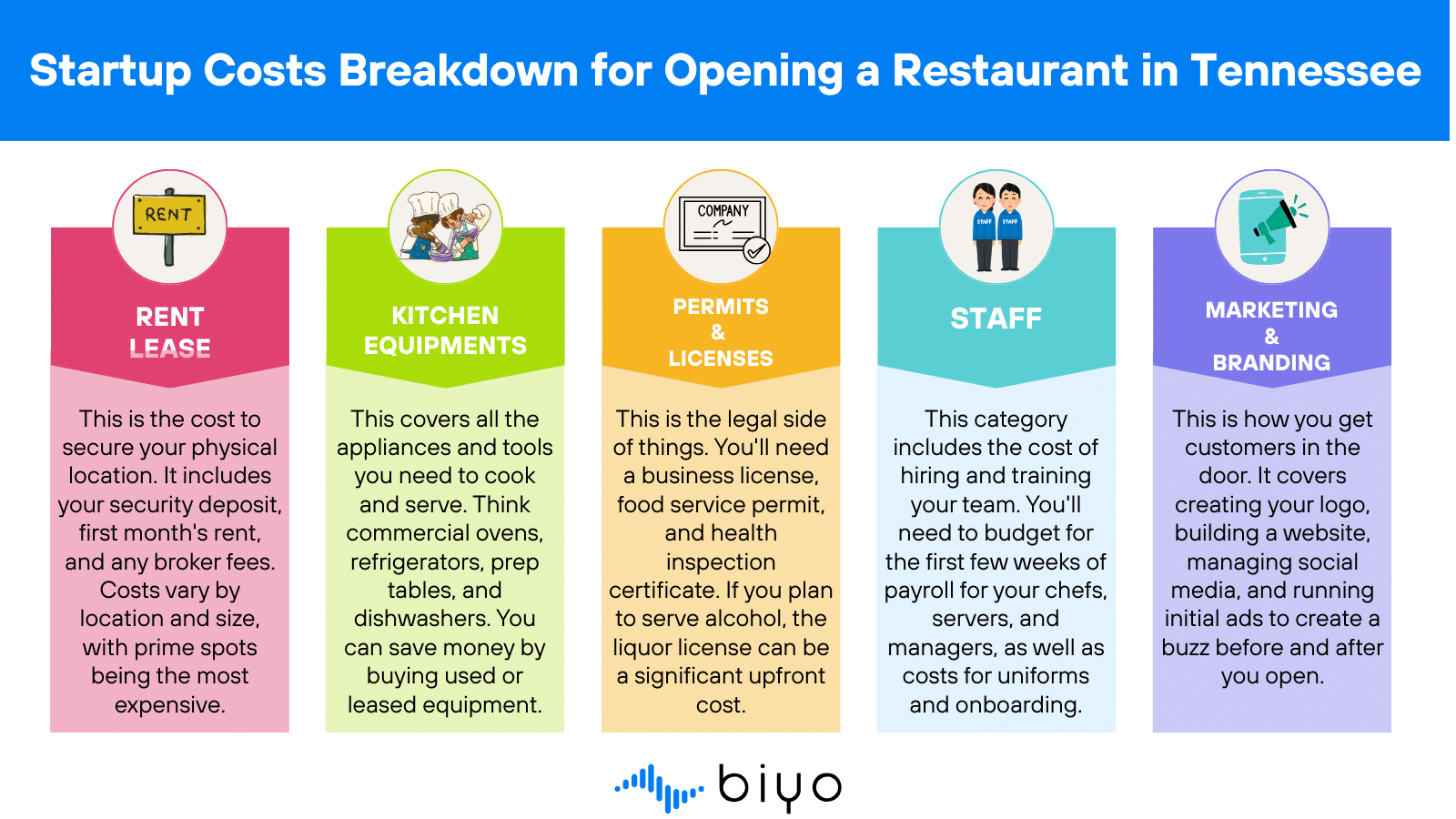
How Biyo POS Supports Tennessee Restaurants
Running a restaurant in Tennessee requires balancing compliance, customer satisfaction, and profitability. Biyo POS offers an all-in-one solution to help restaurant owners succeed. With tools for inventory management, supplier tracking, employee scheduling, and loyalty programs, it simplifies daily operations. The system also integrates online ordering and reporting features that provide real-time insights.
Whether you’re focused on compliance with the Tennessee health department or aiming to grow through effective marketing, Biyo POS supports your goals. You can schedule a call with the Biyo team to explore custom solutions for your restaurant or sign up directly through this link. Starting with the right technology gives you a competitive advantage in Tennessee’s hospitality industry.
Frequently Asked Questions
How much does it cost to open a restaurant in Tennessee?
The average cost to open a restaurant in Tennessee ranges between $150,000 and $500,000. Expenses include rent, equipment, licenses, permits, staff salaries, and initial marketing efforts. Costs vary depending on your restaurant type and location.
What permits are needed to open a restaurant in Tennessee?
You’ll need a business license, food service permit from the Tennessee health department, and possibly a liquor license if you plan to serve alcohol. Food handler certifications are required for employees, and zoning approvals may also be necessary depending on your location.
How long does it take to open a restaurant in Tennessee?
Most restaurants take between 6 to 12 months to open after planning begins. The timeline depends on securing financing, obtaining permits, building out your commercial kitchen, and completing inspections. Delays often occur with liquor licenses or zoning approvals, so plan accordingly.
Can I open a restaurant in Tennessee without prior experience?
Yes, but prior experience helps. Many new restaurant owners succeed by hiring experienced managers and staff, attending small business workshops, and using resources like Biyo POS to manage operations. Combining knowledge, support, and technology gives you the best chance of success.
What are the ongoing compliance requirements for restaurants in Tennessee?
Restaurants must pass regular health inspections, maintain food handler certifications, and stay current on tax filings. Compliance also includes employee reporting, alcohol service training, and updating licenses as needed. Staying organized with a checklist helps meet these requirements consistently.
